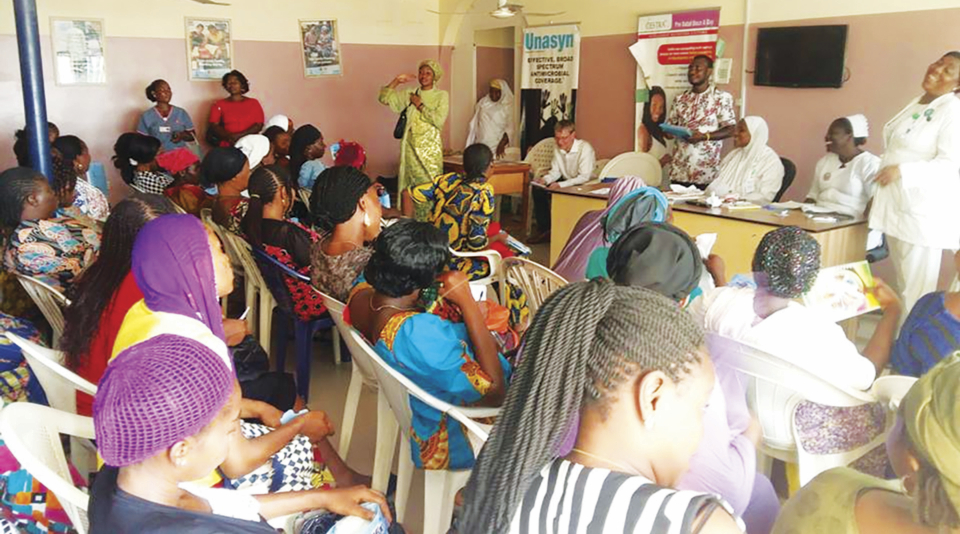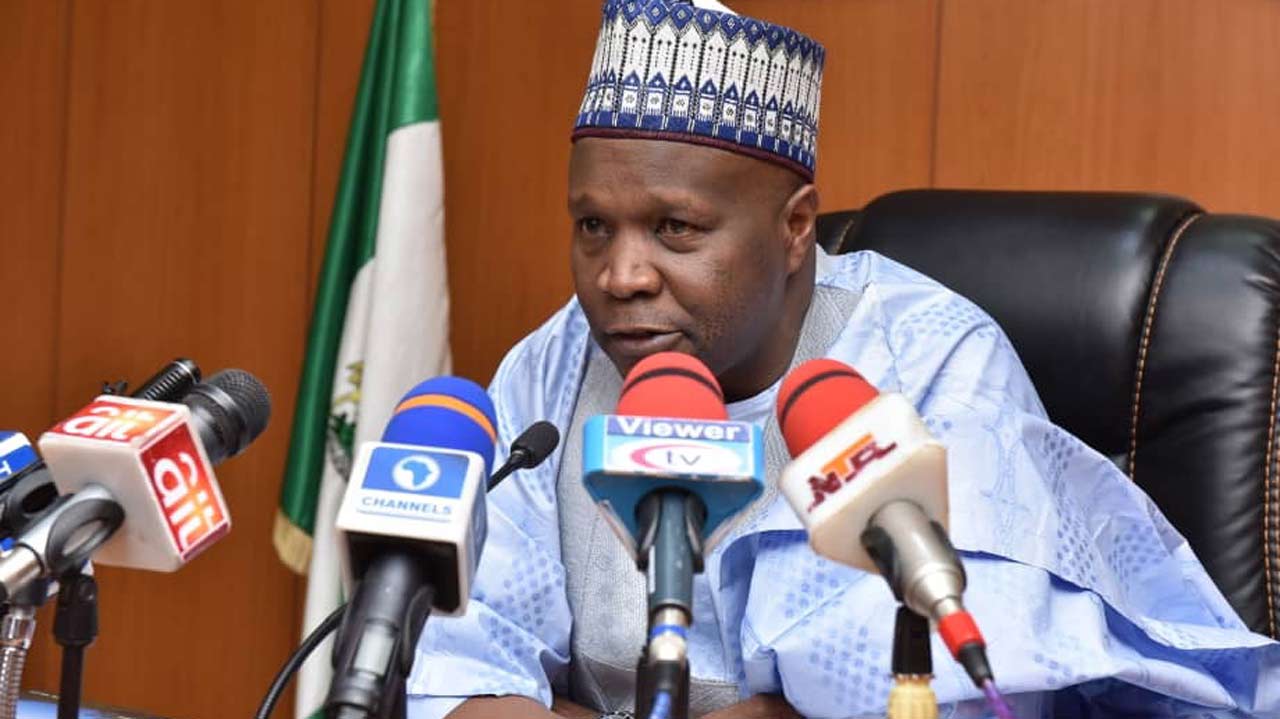
• FG to commence one-to-one replacement of exited healthcare workers in Federal Tertiary Hospitals
• 3,122 of registered 58,736 doctors in Nigeria left country in 2023
• Lagos has largest number of doctors, 8,098, followed by FCT with 4,597, while Taraba has 269
There is growing concern over the alarming rate of migration mass exodus of skilled health professionals from Nigeria to the United Kingdom (UK), United States of America (USA), Saudi Arabia, Canada and other countries for greener pastures with the attendant negative impact on health care delivery in the country.
Official figures obtained by The Guardian from the Federal Ministry of Health and Social Welfare showed that, so far in 2023, about 3,122 doctors have travelled out of the country and have requested for letter of good standing from Medical and Dental Council of Nigeria (MDCN), while a total of 2,134 doctors relocated to Europe in the period under review representing 68 per cent of doctors that have exited the system.
According to information made available to The Guardian from the Ministry, licences as at February 23, 2023 revealed that the total number of doctors in Nigeria is about 58,736 distributed across the federation with Lagos state having the largest number of 8,098 and Federal Capital Territory (FCT) Abuja 4,597, while Taraba state has the least number of doctors with just 269.
Also, it is alleged that some doctors, nurses and pharmacists that have left the system and travelled abroad for greener pastures are still receiving salaries. It is believed that they connive with hospital administrators.
It has also been reported of 48 Nigeria-trained nurses and midwives who ‘likely’ qualified fraudulently are still being allowed to treat patients while under investigation in the United Kingdom (UK).
The Nursing and Midwifery Council (NMC) recently confirmed that 48 Nigerian professionals are suspected of paying someone to sit a computer-based exam that tests medical knowledge and is needed to work in Britain.
Also, no fewer than 18 nurses of Nigerian descent are currently facing charges in Texas, United States (US), following allegations of fake educational qualifications.
In Nigeria, the Federal Government had in July revealed that some medical doctors who have left country in search of greener pastures still have their names on the nominal rolls of its hospitals
The situation has raised so many questions: Are there plans to replace the hundreds of health workers that are leaving the country? What are the implications of the gaps? What is the true situation? How can this be stopped/solutions?
Reacting to the allegation by the Budget Office that some doctors who left the country are still receiving salaries after colluding with the management of teaching hospitals, President, Nigerian Association of Resident Doctors (NARD), Dr. Dele Abdullahi, said: “Well, I do not have information to affirm or refute these claims, it has been stated by agencies of the government at different fora. I have to say I am disappointed that the government can indict themselves in this manner, to state that they have information that employees of government and their Ministries Departments and Agencies (MDAs) are colluding to defraud the Federal Government and till date not one prosecution or example sounds abysmal to say the least.”
Abdullahi, however, chided the Federal Government for trying to use the allegation as the reason for her inefficiency to ensure adequate manpower in public hospitals, thereby denying the Nigerian populace their basic right to health is disturbing to know and pathetic.
He said the Association neither employs nor manages the human resources of the Government agencies. “Our grouse is with ensuring adequate welfare of our members and optimal care for every Nigerian citizen, so, we can’t help the government do their job and we won’t accept their inefficiency in managing the human resource they oversee as basis for not providing what they should,” the NARD President said.
Secretary, National Association of Nigerian Nurses and Midwives (NANNM), Lagos Chapter, Mr. Toba Odumosu, told The Guardian: “The situation is getting dangerous. More people are leaving. We are experiencing acute shortage and it is affecting quality of care. We have to bear more burden. The situation is that more nurses want to go abroad. The response of government is not commensurate. We are calling for a state of emergency. We don’t know what the budget for next year will be. It is time we started looking at the recommended 15 per cent of the national yearly budget for health.
“The Lagos State Government is trying, they paid retention allowance in 2022 to encourage nurses to stay, but it is not enough. The government has to address the pull and push factors.”
Deputy Director of Pharmaceutical Services, Federal Medical Centre (FMC), Asaba, Delta State, Dr. Kingsley Chiedu Amibor, said of a truth, many health care professionals such as pharmacists, medical doctors, nurses and others have left the shores of Nigeria in search of green pastures.
“It is surprising to hear that some workers who have travelled out of the country are still receiving salaries in their various places of work, in collusion with hospital administrators. Shocking because in my Centre where I practice, measures have been put in place to ensure that ghost worker syndrome does not exist.
“Every month, the hospital engages in staff verification exercise to ensure there are no ghost workers in the system. A date is set aside during which all staff, without exception, must compulsorily visit the administrative block with their identity cards, for staff verification. Even workers who are on annual leave are recalled for verification. Any staff who is not physically on ground during the exercise will not receive salary the following month.
“That way, the management is fully aware of staff movement and it becomes nearly impossible for staff who have relocated abroad, to continue to receive salaries from within the system. This is the position currently in my place of practice and I believe the practice should be the same in other federal health institutions,” Amibor said.
Adoption of One-to-One policy
Already, the government is adopting a policy on One-to-One replacement of exited health professionals in Federal Tertiary Hospitals.
Under the arrangement, the Office of the Permanent Secretary, Federal Ministry of Health and Office of the Head of Civil Service of the Federation is to facilitate the approval process for replacement of exited staff without going through all the bureaucratic process of employment.
The Director and Head Teaching Hospitals Division, Federal Ministry of Health and Social Welfare, Dr. Anuma Ogbonnaya, told The Guardian that considering the rate at which the health professionals are exiting service and at different times of the year, there is need for government to put in place a policy on seamless replacement of exited staff in order to maintain optimum health care for the citizens that may stand in need of medical services.
He observed that the extant policy and guidelines on recruitment of staff could not adequately address the peculiarity of the replacement of staff that are exiting in droves.
According to him, the Ministerial Committee considered the submission of the Committee of Chief Medical Directors (CMDs/Medical Directors (MDs) on replacement of exited staff and agreed as follows: the replacement of exited staff will be done quarterly to ensure proper verification and capturing.
Ogbonnaya said the replacement will be one-to-one (doctor for doctor, nurse for nurse etc.) and there shall be no inter-cadre substitution. “The replacement of exited staff is strictly for health professionals with similar qualifications. No hospital will be allowed to engage more than the number of health professional that exited as there will be replacement only for the number of exited staffs irrespective of the salary/emolument.
“Sanction(s) shall be applied on any CMDs/MDs that violates the guidelines of the exited staff replacement policy. Infraction on this policy shall be considered as gross misconduct of which extant rules applies. This policy shall guarantee timely completion of replacement process and ensures uninterrupted service delivery.
“This proposed policy shall not replace the normal recruitment of staff by the hospital which is expected to be conducted in line with appropriate extant guidelines,” he said.
On plans to replace the hundreds of health workers that are leaving the country, Amibor said: “Like I did mention, health care professionals are leaving the country in droves and this doesn’t seem to be abating. I have come across several advertisements in news and social media, from federal tertiary health institutions, asking interested and qualified healthcare professionals to apply for jobs, apparently in a bid to replace those that left. I make bold to say that no health institution can function optimally without skilled workforce, so to the best of my knowledge, a good number of our federal tertiary institutions are replacing those that left abroad for greener pastures.”
Implications
On the implications of the gaps left by exiting health professionals, Ogbonnaya stated that it has led to shortage of skilled health professionals; overstretching of the available health professionals, increase disease burden; reduction in life expectancy; reduction in the availability of effective and efficient Healthcare services, amongst others.
Ogbonnaya said the emigration of health professional including doctors, nurses, laboratory scientists, pharmacist, radiographers among others also known as ‘brain drain’ is an evil in the Nigerian healthcare system, adding that the reasons for the mass exodus of health workers are expressed in terms of push and pull factors such as lack of opportunity for postgraduate training poor remuneration poor working conditions, civil unrest and personal security, poor quality of postgraduate training at home cost of living and public services and desire to join families abroad.
He listed the pull factors to include opportunities for career advancement, greater financial reward, improved working conditions, attraction to centres of medical and educational excellence as well as better living conditions.
On the implications of the gaps, Amibor said: “Migration of health workers refers to the movement of health personnel in search of a better standard of living and life quality, higher salaries, access to advanced technology and more stable political conditions in different places worldwide. Brain drain has a significant impact on labour output and is doing more harm than good on the health care delivery process in the country. Most professionals working in our health institutions are under pressure from excessive workloads, as a result of inadequate manpower.”
Amibor, who was former, Chairman, Association of Hospital Pharmacists of Nigeria (AHPN), said Nigeria’s health outcome indicators are still unacceptably high, in spite of modest improvements.
He said brain drain causes adverse effects on all health outcomes including maternal and child health in rural and low resource communities. He said it results in loss of human capital, which may lead to skill shortages and possible depletion of skilled manpower in the health care sector, not to talk of the loss of billions of naira in cost of training these professionals.
The hospital pharmacist said there is reduced accessibility to essential health services and facilities; with worsening health indices including morbidity, mortality, and nutritional status.
Amibor said, according to WHO, the acceptable and recommended ratio of pharmacists to the population is one pharmacist to 2000 of the population, migration has resulted in the exodus of thousands of pharmacists in the last couple of years, resulting in a current pharmacist to patient ratio of about 1 to 14,000. Same goes for most other professionals, including nurses and medical doctors.
“A shortage of important, skilled workers may lead to loss of confidence in the economy, which will cause persons to desire to leave rather than stay. Brain drain will worsen our health systems fragility and eventually hamper the nation’s ability to meet the health needs of the population,” he said.
Going forward
On how Nigeria can tackle acute shortage of doctors, Abdullahi said: “To start with, not to be labour us with so much English, make the doctors well, the workers, the trainer’s and all other allied healthcare workers, that way we can keep what we have to a large extent, create policies that aid seamless integration of doctors into the labour market. You can’t leave any healthcare worker in the society with no job and expect you will meet them there whenever you are ready to employ them.
“Talk more with the doctors, we are essential commodities that is being jostled for from different communities beyond our shores. Increase the production of more doctors, we need to support our medical schools as much as possible and fund ways to continually sustain them both at undergraduate and postgraduate levels. Finally, we should make the working environment more conducive and effective while presenting ways to secure the future of the healthcare workers. Like every other Nigerian all we want is a good life, a good working environment and sustainable/secured community to work in, where we can raise our families and live a pleasant life.”
To reverse the trend, Amibor said a major obligation of any government to its population is to pursue and implement policies that increase numbers of key professionals to a desirably stable level, or where they are already approaching stability, to maintain them at those levels. Unfortunately, he said, this has not been the case in Nigeria.
The consultant pharmacist said efforts should be made to create an enabling environment by improving existing policies in order to foster economic prosperity and development of the nation. He said other factors that need to be addressed include overall improvement in standard of living in the country, provision of basic amenities including constant electricity, as is the case elsewhere in the world, provision of adequate security, and welfare scheme for the unemployed.
Amibor said other solutions include mass employment of young, unemployed, but duly qualified healthcare professionals, better salary and working conditions, and staff motivation. He said the current wage structure is part of the problem and would need to be reviewed to make it at par or at least close to what obtains globally, in order to stem the tide.
Amibor said there is also need for the government to invest in infrastructure development and institute good leadership that will in turn guarantee a modest standard of living, and this will potentially reduce the urge to migrate elsewhere for greener pastures.
Ogbonnaya said while exploring various options to stop and reverse the trend of emigration of health professionals, there is urgent need to replace staff that exited from the employment of federal hospital to reduce the negative impact of the brain drain on service delivery.
He revealed that the Minister of Health on the September 13, 2022 constituted a committee to stop and/or mitigate the effect of brain drain in the health sector and the bonding of health workers trained at taxpayers’ expenses.
According to him, the committee consists of the representatives of the MDCAN, Nigeria Medical Association and her affiliates, Nursing and Midwifery Council of Nigeria, Nigeria Association of Nurses and Midwifery, Pharmacy Council of Nigeria, Medical Laboratory Science Council of Nigeria and other MDAs: Office of the Head of Civil Service of the Federation, Ministry of Labour and Employment, National Salaries, Incomes and Wages Commission.
The committee was saddled with the following responsibility: to conduct a situation analysis to understand the current migration trend among health workers in the country; to review the 2017 Health Workforce migration policy document and identify key issues not addressed in the document based on findings; to establish a list of essential instruments that need to be in place in order to minimise the risk and maximise the benefits and impact of migration; to consult with key MDAs, the private sectors and other key stakeholders with respect to the existence, feasibility and desirability of those instruments; to have a modality for a concise high-level health workforce migration policy for Nigeria and instruments for implementation; to work out modalities to mitigate the effect of brain drain in the country; to work out modalities for seamless replacement of exited staff in the country; to make recommendations of a general kind to mitigate the effect of brain drain and seamless replacement of exited staff in the country; and the Committee has held several meetings and has made useful recommendations to government.
Ogbonnaya further told The Guardian that the Committee observed that there are incontrovertible evidences that health workers are leaving in droves the shores of the country to other countries that offers improved conditions of service and exposure to new and modern technological advances in health care delivery among other factors.
He stated that from Committee’s findings, the brain drain affects all categories of health workers but affects more the highly skilled professionals the resultant effect of which impacts negatively on the service delivery of the federal tertiary hospitals, such that the citizens are denied the services of skilled health professionals while the health workers that have not exited or remained in the service of the hospital are exposed to excessive work-load resulting in burn-out effects and sub-optimal quality of care.
Ogbonnaya said that in line with the mandate of the Committee, various options for stopping and/or mitigating the effect of brain drain were explored which includes review of the bonding policy for Officers in the employment of Government that are sent for in-service training by the federal hospitals, allowing training institutions to increase the number of health professionals graduated through increase in carrying capacities of existing Colleges of Health Sciences and establishment of new ones, improved conditions of service for health professionals.
According to him, the committee also proposed to the Federal Government to, apart from improving working conditions that will encourage potential migrants to stay and health professionals in the diasporas to return and offering better wages, it should initiate the due process of strategic repatriation of Nigerian health professionals in the Diaspora as a way of giving back to the country, develop policies that will discourage emigration health professionals by restricting issuance of letters of good standing to health professionals by regulatory agencies.
Other recommendations include that the government consider bonding health professionals trained at government’s expense, that government develops short, medium- and long-term policies that provide a conducive work environment for health professionals make scholarships available to students to become health professionals and increase in the retirement age of health professionals, amongst others.
Meanwhile, the United Kingdom Government has started considering closing temporary visa schemes for care workers as the country recorded the highest numbers of migrants in the last nine months.
The move was a result of the call made by the New Conservatives party, which urged the country’s ministers to end temporary visa schemes for care workers as part of an effort to reduce net migration.
The group, which is reported to be supported by former Home Secretary, Suella Braverman, and former UK Prime Minister, Boris Johnson, stated that the government could no longer handle the number of migrants coming into the UK on a daily basis.
The Home Office, the UK’s migration department, on Thursday, noted that 143,990 health and care worker visas were granted in the year ending September 2023.
This is more than double the 61,274 for the year to September 2022 and the top three nationalities, according to the Home Office, on these visas are Indians, Nigerians and Zimbabweans.
According to the report, Nigeria has the most significant percentage increase behind Zimbabwe at 169 per cent and India, with 76 per cent.






